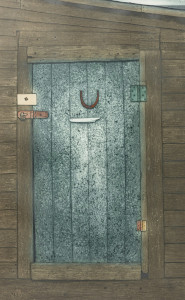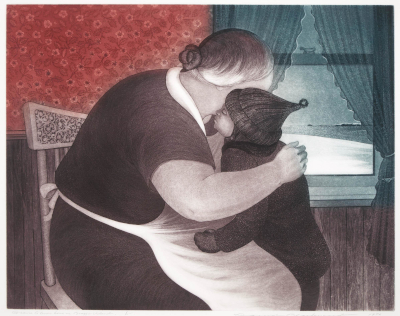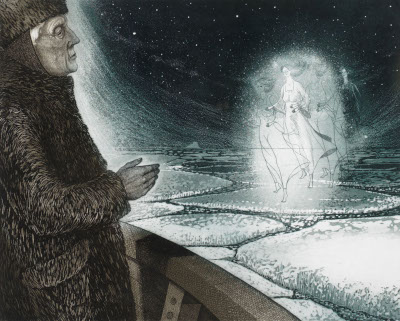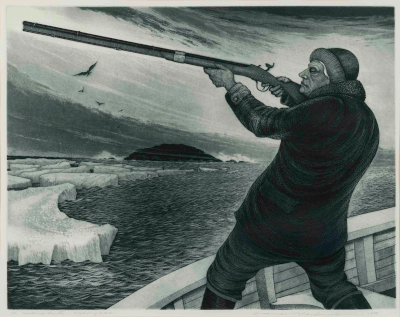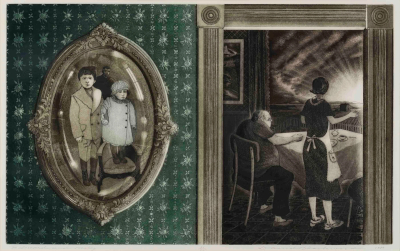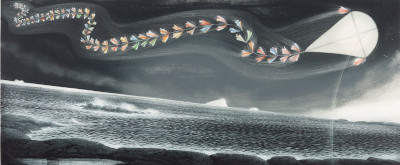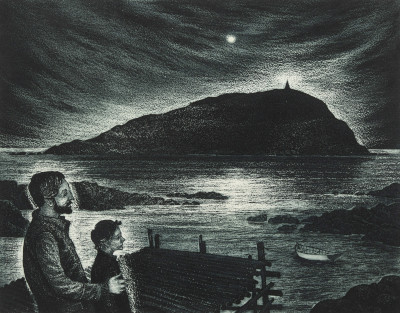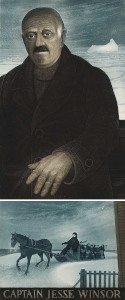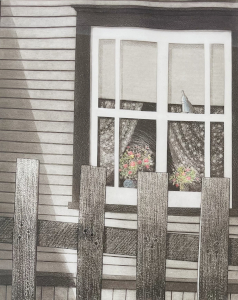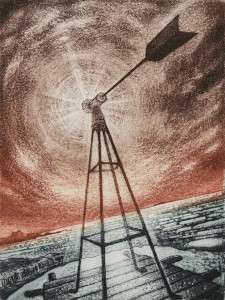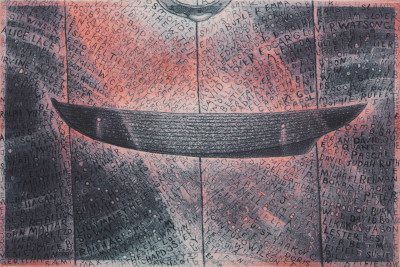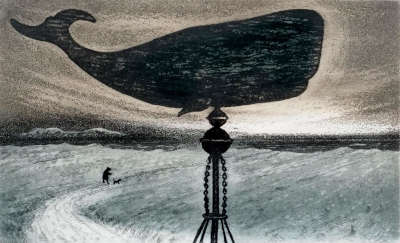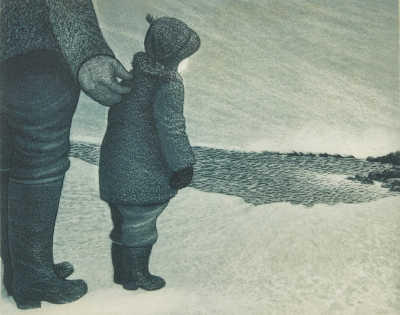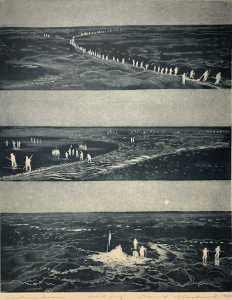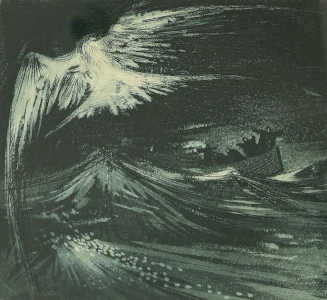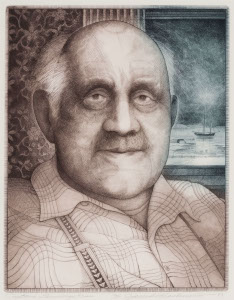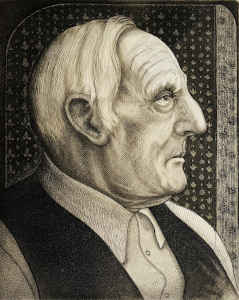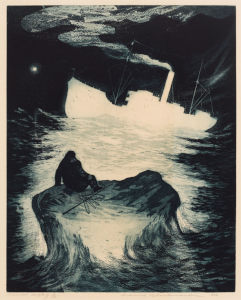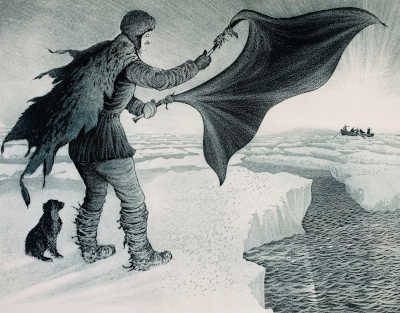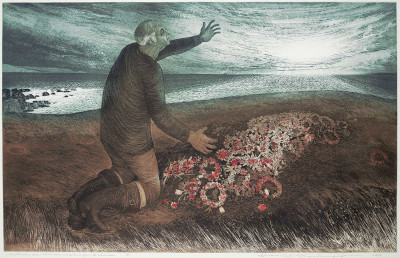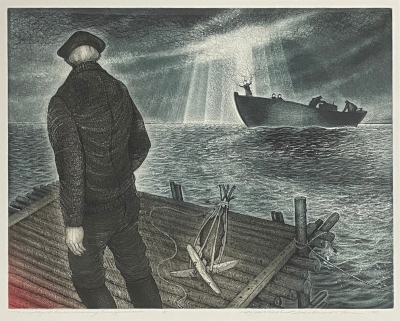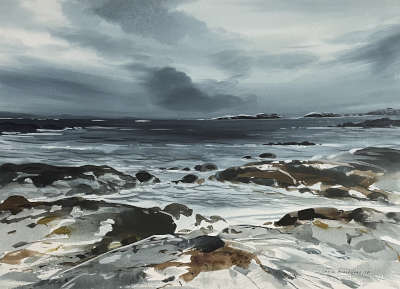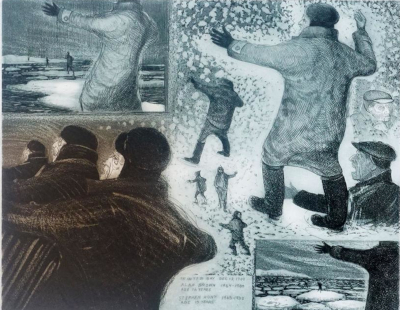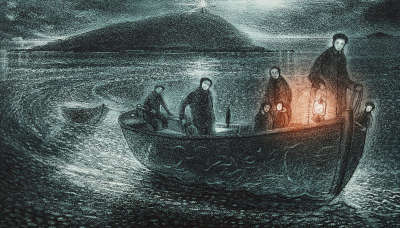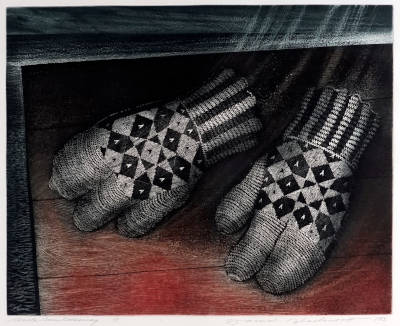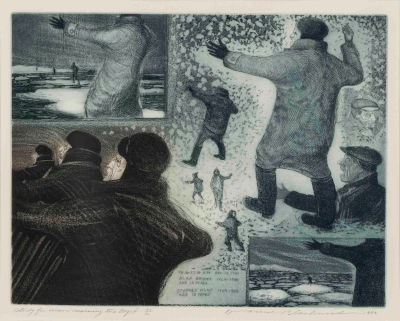While Canada Post remains an essential part of the country’s logistics infrastructure we continue to deliver the art to the homes of our customers using alternative carriers
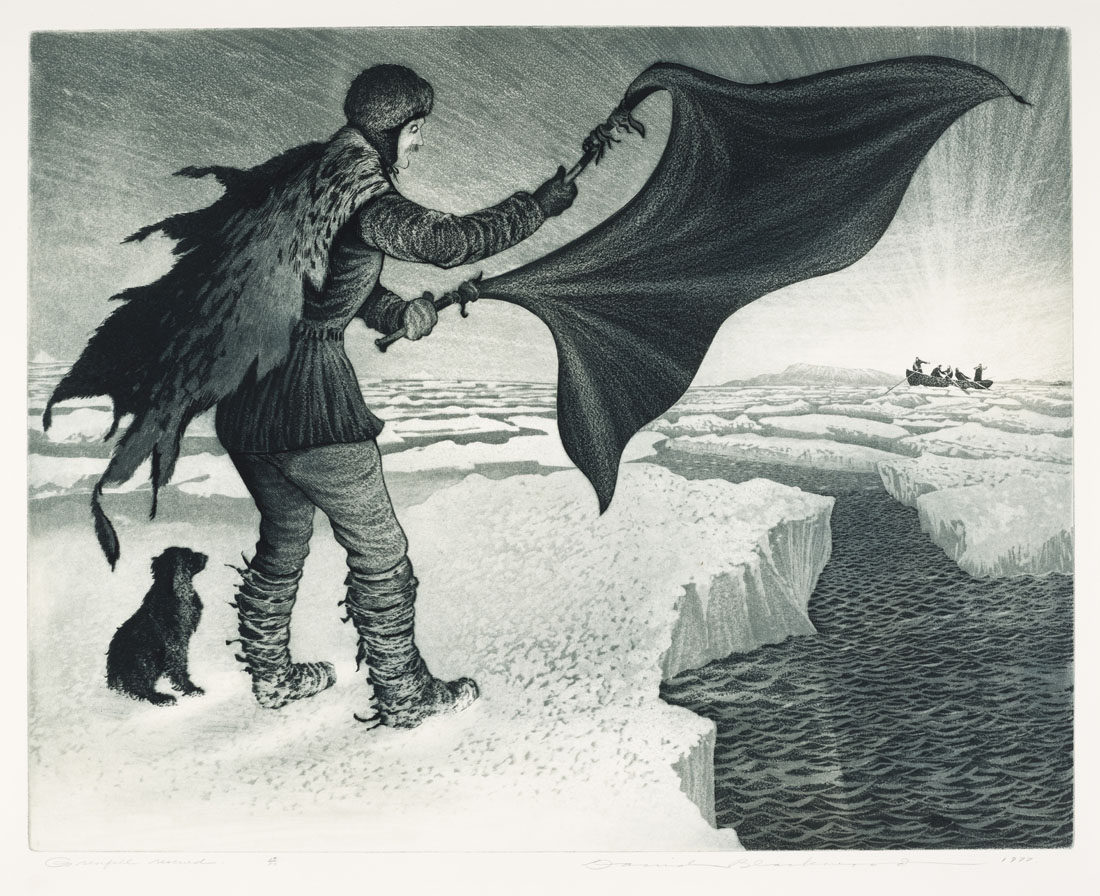
Additional images
Rescue
Ships sailed up the Labrador together and kept an eye out for each other so there were often other ships in the vicinity. One of the greatest fears was fire at sea depicted in Fire at Sea, when the crew would be forced to abandon ship. Sometimes search parties were sent out to look for survivors as we see in The Search Party at Sea.
Grenfell Rescued shows Sir Wilfred Grenfell, a doctor who founded the Presbyterian charity known as the Grenfell Mission, which delivered medical services upthe coast of Newfoundland and Labrador. He became a mythological figure in the history of Newfoundland. Grenfell maintained that he had been marooned on an ice flow and had been forced to kill his sled dogs to make a cloak from their skins in order to keep warm until he was rescued. However, it has recently been discovered that this story was fabricated in order to boost sales of his book My Life in Labrador, Rescued! as well as boost attendance and revenue at his lecture tours throughout the U.S. and Canada which were designed to fund the Mission.
Sir Wilfred Thomason Grenfell KCMG (28 February 1865 – 9 October 1940) was a British medical missionary to Newfoundland. He was born at Parkgate, Cheshire, England, on 28 February 1865, the Son of Rev. Algernon Sidney Grenfell, headmaster of Mostyn House School, and Jane Georgiana Hutchison. Grenfell moved to London in 1882. He then commenced the study of medicine at the London Hospital Medical College (now part of Barts and The London School of Medicine and Dentistry) under the tutelage of Sir Frederick Treves. He graduated in 1888.
The Royal National Mission to Deep Sea Fishermen sent Grenfell to Newfoundland in 1892 to improve the plight of coastal inhabitants and fishermen. When Dr. Wilfred Grenfell first arrived on the coast of Labrador in 1892, he was astonished by what he found in the remote fisherman community; with a population of 30,000 there was not a single medical doctor. Sir Grenfell quickly committed himself to improve the medical, economic and spiritual needs of the fishermen and their families. Eventually, he would build the region’s first hospital and ultimately improve the social, health and economic status of those who populated the area. That mission began in earnest in 1892 when he recruited two nurses and two doctors for hospitals at Indian Harbour, Labrador and later opened cottage hospitals along the coast of Labrador. The mission expanded greatly from its initial mandate to one of developing schools, an orphanage, cooperatives, industrial work projects, and social work. Although founded to serve the local area, the mission developed to include the aboriginal peoples and settlers along the coasts of Labrador and the eastern side of the Great Northern Peninsula of western Newfoundland.
In 1908, Grenfell was on his way with his dogs to a Newfoundland village for a medical emergency when he got caught in “slob”, from which he managed to get onto an ice-pan with the dogs. He was forced to sacrifice some of his dogs to make a warm, fur coat for himself. After drifting for several days without food or fresh water, he was rescued by some villagers in the area. Because of this experience he buried the dogs and put up a plaque saying, “Who gave their lives for me.”
Grenfell Rescued
1977
Etching
22 x 28 in
Inscriptions
signed, titled, numbered (edition of 50) and dated 1977
Provenance
Private collection, Montreal
Frame
unframed
free shipping
Sold
-
Artwork details
-
Free shipping
-
Free return
- Secure payments
Artwork type:
Limited edition
Title:
Grenfell Rescued
Year:
1977
Medium:
Etching
Size:
22 x 28 in
Frame size:
Signature:
Signed, front
Provenance:
Private collection, Montreal
Free shipping within Canada; Ships in 2 days from Montreal, Canada
View Details
This piece can be returned within 15 days. Free! View Details
You can pay by credit and debit card, PayPal, or bank e-transfer. View Details
